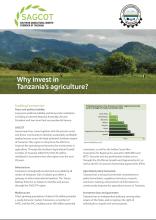Land Library
Welcome to the Land Portal Library. Explore our vast collection of open-access resources (over 74,000) including reports, journal articles, research papers, peer-reviewed publications, legal documents, videos and much more.
/ library resources
Showing items 1 through 9 of 103.The new India’s Right to Food Campaign website was launched in March 2014 at the campaign’s fifth convention.
Less than 2% of the land available worldwide is owned by women. Why is the issue of land so gendered? What approaches and lessons learned can development professionals utilise to address the issue of gender and land?
The Integrated Drylands Development Programme (IDDP) is a global UNDP initiative to promote sustainable development in the drylands, and advance the implementation of the UN Convention to Combat Desertification.
Government has come together with the private sector and donor community to develop sustainable, profitable agribusinesses across the high-potential Southern region of Tanzania. This region is a key focus for efforts to improve the operating environment for investments in agriculture.
The Southern Agricultural Growth Corridor of Tanzania (“SAGCOT”) has been established as a public private partnership with the objective to enhance Tanzania’s food security and accelerate agricultural transformation.
Tanzania has a long history of sugar cane production and it has now a prioritized national policy to attract foreign investments into modern and industrial scale sugar cane production. Between 2001 and 2010, the production of sugar in Tanzania increased from 130,000 Mt pa to 280,000 Mt pa.
The founding document of SAGCOT, the Investment Blueprint, was developed by the founding partners encompassing government, donor partners, farmers, and the private sector. The SAGCOT Investment Blueprint details the objectives of SAGCOT and how these will be achieved.
In Africa, the pursuit of gender equality in inheritance rights remains one of the most difficult challenges due to its entrenched patriarchal characteristics. This is also the case in the rural communities of South-Eastern Nigeria.
Across Africa, land is integral to identity and existence. Access to, and ownership of land for women is often problematic – particularly when laws and culture collide.





